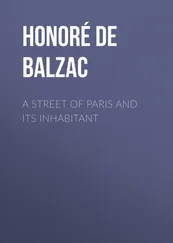Henry Edwards - Old and New Paris - Its History, Its People, and Its Places, v. 2
Здесь есть возможность читать онлайн «Henry Edwards - Old and New Paris - Its History, Its People, and Its Places, v. 2» — ознакомительный отрывок электронной книги совершенно бесплатно, а после прочтения отрывка купить полную версию. В некоторых случаях можно слушать аудио, скачать через торрент в формате fb2 и присутствует краткое содержание. Жанр: foreign_antique, foreign_prose, Путешествия и география, на английском языке. Описание произведения, (предисловие) а так же отзывы посетителей доступны на портале библиотеки ЛибКат.
- Название:Old and New Paris: Its History, Its People, and Its Places, v. 2
- Автор:
- Жанр:
- Год:неизвестен
- ISBN:нет данных
- Рейтинг книги:4 / 5. Голосов: 1
-
Избранное:Добавить в избранное
- Отзывы:
-
Ваша оценка:
- 80
- 1
- 2
- 3
- 4
- 5
Old and New Paris: Its History, Its People, and Its Places, v. 2: краткое содержание, описание и аннотация
Предлагаем к чтению аннотацию, описание, краткое содержание или предисловие (зависит от того, что написал сам автор книги «Old and New Paris: Its History, Its People, and Its Places, v. 2»). Если вы не нашли необходимую информацию о книге — напишите в комментариях, мы постараемся отыскать её.
Old and New Paris: Its History, Its People, and Its Places, v. 2 — читать онлайн ознакомительный отрывок
Ниже представлен текст книги, разбитый по страницам. Система сохранения места последней прочитанной страницы, позволяет с удобством читать онлайн бесплатно книгу «Old and New Paris: Its History, Its People, and Its Places, v. 2», без необходимости каждый раз заново искать на чём Вы остановились. Поставьте закладку, и сможете в любой момент перейти на страницу, на которой закончили чтение.
Интервал:
Закладка:
In Paris a sempstress is supposed to be “ gentille ,” a lingère , or getter-up of linen, “ aimable ,” a flower-girl “pretty.” The oyster-woman, although not characterised by any one particular quality, is credited with a combination of qualities in a more or less modified degree. Without being in her first youth, she is young; without being in the bloom of beauty, she does not lack personal charm; and frequently she invests even the opening of oysters with a grace which may well excite admiration. La belle écaillère is indeed the name traditionally applied to her. With the origin of this name a tragic story is associated.
There was once a charmingly pretty oyster-girl named Louise Leroux, known as La belle écaillère . She had a lover named Montreuil, a fireman, who, in a moment of frantic jealousy, plunged his sword into her breast. This horrible crime at once rendered “the beautiful oyster-girl” famous, not only in Paris, but throughout Europe; and in due time the legend of her life and love took dramatic form, and found its way to the stage. The interest excited in her unhappy end was all the greater inasmuch as her murderer had eluded justice by flying to England, where, in London, he set up as a fencing master. The Gaieté Theatre achieved, in 1837, one of its greatest successes by putting on the boards, under the title of La Belle Écaillère , the tragic history of Louise Leroux.
Since then the name has been familiarly applied without discrimination to the female oyster-sellers of Paris, many of whom have well deserved it. But while bearing the name, they have abandoned the traditional fireman, as rather too dangerous a commodity. In lieu of firemen they have captivated notaries, financiers, and others in superior stations of life; whilst one is known to have turned the head of a state minister, who, even if he did not marry her, confessed the passion with which she inspired him by devouring thirty-two dozen of her oysters every morning before breakfast. The flame within him had first been excited by the siren’s ready wit. As he was entering a restaurant one day, a friend who accompanied him remarked: “To-day, my dear sir, more than ever, France dances on a volcano.” “What nonsense!” cried the écaillère ; “she dances on a heap of oysters!” Next day the exclamation was reported in a Paris journal, which easily turned it to political account.
There was another oyster-girl who solved a question of lexicographic definition which had hopelessly baffled the Academicians. A new edition of the Dictionnaire de l’Académie was being prepared, and it became necessary to establish the distinction of meaning between the two expressions de suite and tout de suite . The forty Academicians were all at variance about it, and were about to tear their hair, when one of them, Népomucène Lemercier, exclaimed: “Let us go and dine at Ramponneau’s. That’s better than disputing. We can discuss the matter during dessert.” “Agreed,” replied another member – Nodier. The Academicians forthwith set out, and when they had arrived at their destination one of them, Parseval-Grandmaison, who ordered the dinner, said to the écaillère : “Open forty dozen oysters for us de suite , and serve them tout de suite .” “But, sir,” replied the oyster-woman, “if I open them de suite , I cannot serve them tout de suite .” The Academicians looked at each other in astonishment. The problem had been solved. They had now discovered that of the two expressions tout de suite indicated the greater celerity.
CHAPTER II.
THE ENGLISH AND AMERICANS IN PARIS
HITHERTO the types of character which we have noticed have been native. Let us vary them by a glance at the typical foreigner or rather foreigners residing or sojourning in Paris.
To begin with the Englishman. In Paris, although there are a great number of Englishmen, it can hardly be said that an English Society exists. Samuel Johnson once complained that Englishmen did not fraternise with one another; that if two visitors called upon a lady about the same time and were shown into her drawing-room, they would, until the lady made her appearance – say for five minutes – simply glare at one other in silence, whereas a couple of foreigners would, although they had never met before, have entered into a conversation.
Without, perhaps, being aware of Johnson’s stricture on the social frigidity of his own countrymen, an excellent French writer, John Lemoinne, has noticed the same insular peculiarity in English visitors to Paris. “The English,” he says, “do not seek one another’s acquaintance; they do not come into other lands to find themselves. If they easily form acquaintanceship with foreigners, they are more fastidious in approaching each other. An Englishman will make friends with a Frenchman without the ceremony of presentation, I mean of introduction, but never with another Englishman. A couple of Englishmen stare at each other very hard before saying, ‘How do you do?’”
Punch many years ago noticed this national characteristic in a picture which represented two English visitors to Paris breakfasting at the same table in the Hôtel Meurice, and, although the only guests in the room, solemnly ignoring each other’s existence.
But M. Lemoinne goes further than Punch . “If the English leave their native land,” he says, “it is not to find their own compatriots; it is to see new men and new things. Even when you understand their language, they prefer to talk to you in their bad French. The thing is intelligible enough: they wish to learn, and have no desire to teach. You are regarded simply as a book and a grammar. The foreigner must be turned to some account.”
So far excellent. But let us return to Samuel Johnson. When he visited Paris did he air his “bad French”? No, he absolutely refused to speak a word of anything but English. This by no means confirms M. Lemoinne’s proposition. Yet in fairness, let it be said, Johnson’s chief objection to talking French in Paris was a fear lest he should “put his foot in it,” and, lexicographer as he was, excite by some grammatical blunder the ridicule of irreverent Parisians.
Let us see, however, to what lengths M. Lemoinne is prepared to go. “If there was ever a people who have the sentiment of nationality, it is,” he says, “the English. They are impregnated, petrified with it; the thing is fatiguing and offensive. But in order to affirm and manifest this sentiment the English have no need to group themselves, to form themselves into a society. An Englishman is to himself England alone; he carries his nation in him, with him, on him; he does not require to be several. Everywhere he is at home: the atmosphere is his kingdom and the ambient air his property. Religion enters largely into this temperament. The Englishman carries not only his nation, but his religion with him; he scours the whole earth with his Bible for companion; the Frenchman, habitually catholic, requires a bell and a priest – he does not know how to converse directly with Heaven. From a social point of view, moreover, the English find France freer, more liberal, more open than their own country. English society, at home, is regulated like music-paper; it has a severe hierarchy, in which the most idiotic little lord stands before a man of genius without a title. Geographically, it is a very narrow space which separates England from France; but this space is a gulf. The two countries are in constant relationship; but they never arrive at any resemblance to each other. We have not the political liberty of the English, and they have not our social equality. An Englishman could not live with laws like those which, in France, regulate the right of speaking, the right of writing, the right of petitioning, the right of assembling, the right of going and coming; but a Frenchman would be stifled amidst those thousand conventional bonds which form English society. The influence of convention in England is such that it equals and even surpasses the tyranny of the political and administrative laws of the Continent. That is why the Englishman, after a stay of some time, and when the ice of his nature is a little melted, moves amongst foreigners as freely as he moves at home. No possible comparison can be made between the Frenchman in London and the Englishman in Paris; or at all events the comparison can only be an antithesis. The Frenchman who pays a visit to England will, so soon as presented, be welcomed with a boundless hospitality, provided his visit is only a flying one; but if he apparently wishes to take root, the soil refuses, and society shuts itself up and retires as though a descent were being made upon its territory. It must be confessed, moreover, that France is not usually represented in England by the cream or flower of her population; and for a simple reason, namely, that a Frenchman does not go to England for pleasure or from choice, and that he has no idea but that of returning as quickly as possible. But apart, even, from these particular circumstances, the mere pressure of the English social atmosphere suffices to asphyxiate a Frenchman. It is a world, an order of ideas, an assemblage of laws and customs entirely different from all others.
Читать дальшеИнтервал:
Закладка:
Похожие книги на «Old and New Paris: Its History, Its People, and Its Places, v. 2»
Представляем Вашему вниманию похожие книги на «Old and New Paris: Its History, Its People, and Its Places, v. 2» списком для выбора. Мы отобрали схожую по названию и смыслу литературу в надежде предоставить читателям больше вариантов отыскать новые, интересные, ещё непрочитанные произведения.
Обсуждение, отзывы о книге «Old and New Paris: Its History, Its People, and Its Places, v. 2» и просто собственные мнения читателей. Оставьте ваши комментарии, напишите, что Вы думаете о произведении, его смысле или главных героях. Укажите что конкретно понравилось, а что нет, и почему Вы так считаете.












